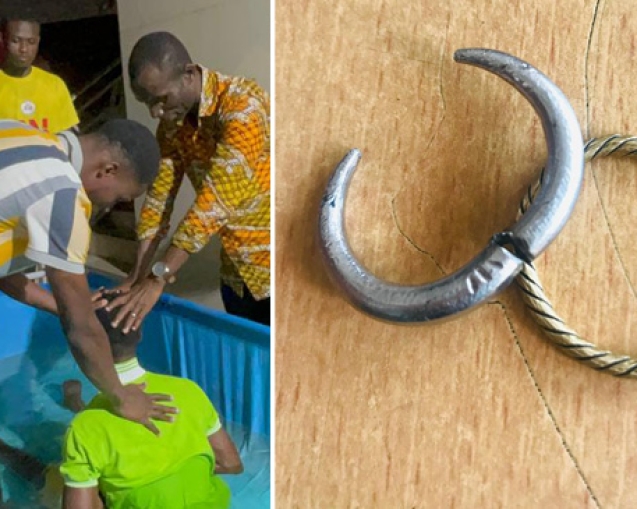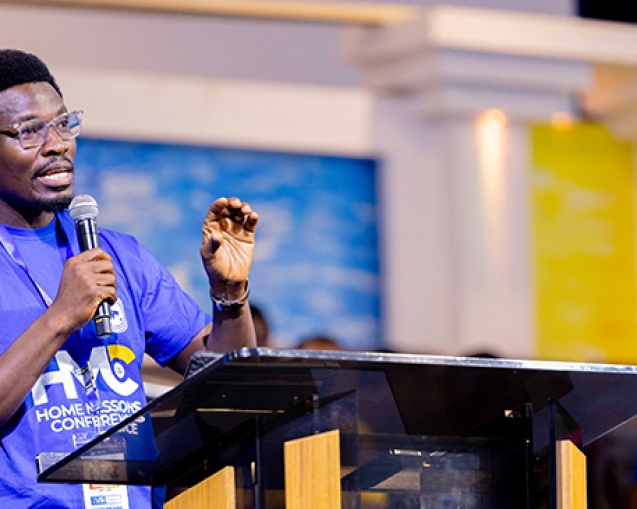Four significant issues have dominated discussions amongst the Ghanaian citizenry and the prints and media landscape since the last half of 2021. They are the draft bill on “Proper Sexual Rights and Ghanaian family values Bill 2021”, The proposed E-Levy introduced in the 2022 budget considerations and the retrogressive wind of Coup d’etat blowing across Sub-Saharan Africa countries, with the most recent occurring in Burkina Faso. The Universities Teachers Association of Ghana (UTAG) has also embarked upon a strike action since the beginning of the 2021/2022 academic year.
The Bill on “Proper Sexual Rights and Ghanaian family values” introduced in Ghana’s parliament in July 2021 went through its first reading in August 2021, with subsequent readings and debates on it expected at any moment. Whereas a whooping majority across the rank and file in both political divides seem to support the Bill, some notable academicians, legal luminaries and civil society organizations do not accept the Bill in its present format. They wonder why people’s bedroom freedoms and rights should become a matter of public discourse. They also dread the dire economic consequences to the nation from its developing partners who have openly kicked against the Bill. Most Ghanaians across the religious divide are determined to see the passage of the Bill. At the same time, the international community with elements from within insists its passage will infringe on people’s human rights.
The proposed Electronic Transaction Levy (i.e. E-levy) is a tax applied on transactions made on electronic or digital platforms in Ghana. Tabled by the finance minister during the 2022 budget reading, the citizenry appears almost divided on the issue concerning its suitability or otherwise. While some argue that it is appropriate for the nation’s development, others insist it is regressive and a full display of insensitivity towards the Ghanaian populace. Others are also for the E-levy but think the government must reduce it drastically from the proposed 1.75%. Four (4) months after its first introduction, there seems to be no end in sight concerning the brawls, chaos, bitter exchanges amongst civil society organizations, the two main political parties, the Executive and the legislative arms of government.
Whereas one party insists it is the best thing that can ever happen to the country to reduce its infrastructural deficits, the other party remains determined not to support its passage into law. The latter argues the government must instead focus on the prudent financial management of the country’s resources by mainly cutting down wastages. In human co-existence, no party wins in any stand-off situation when they take entrenched positions. The canon of scriptures has many examples of sharp disagreements on issues related to the E-levy stand-off in Ghana today.
Then comes the eight (8) weeks UTAG strike. Whiles the government insists on maintaining some macroeconomic balance in its offer, UTAG are determined to go the full haul and collect what they term as their due, which they think is long overdue. Not an exciting time to opt to lead in a world bearing the brunt of the fall out of the Covid crisis, the menace of Coup d’etat have also reared their ugly head in Sub-Saharan Africa. In any family or societal setting, anytime there is an issue, and one party insists on a course of action with the other also determined not to give in, there is bound to be a destructive stand-off complex to resolve.
The book of Genesis chapters 37-45 narrates some happenings within the household of one of the Christian faith pillars in Jacob’s person. There were about three stand-offs that attempted to tear his family apart. In every one of them, when there was no headway in sight, Judah seems to possess the magic wand to turn things around and keep their family and the progeny of Jacob alive. The object of this article is not to necessarily side with any of the opposing arguments but rather look at their collective effect on our national cohesion as a people and recommend one surest way out of these stand-offs.
Judah was the fourth son born to Jacob and Leah’s first wife. At a point, Jacob’s household consisted of not less than eighteen (18) people comprising Jacob, his two wives and their respective maids, twelve strong boys together and their only sister Diana. Looking at the dynamics of this household, a total of not less than five possible factions could be operating amongst their ranks. The notable ones are Jacob’s first wife Leah and her seven (7) children, Rachel and her two (2) children, Zilpah and her two (2) children. Others are Bilhah and her two (2) children and Jacob and Joseph, due to the special love and bond. We should, therefore, not be surprised about the different ideological orientations amongst the Ghanaian populace with a population not less than 30 million. Members of Jacob’s household were to bury all their differences and live in harmony as one family. Try as they did, some schisms were still brewing, especially when Jacob offered Joseph the coat of many colours to signify his special love for him. Young lad Joseph’s problems got compounded when he began to report the evil deeds of his senior brothers to Jacob, his Dad. Besides, his dreams also suggested someone holding the future leadership mantle. There was, therefore, a sudden spike in their level of hatred for him. “… And they hated him all the more…” (Genesis 37:8)
One faithful day, Jacob sent Joseph to go and check how his brothers were faring after they took the flock for grazing. When a man found him wandering in the plains of Shechem, he asked him what he was looking for, and he responded, saying, “I’m looking for my brothers. Can you tell me where they are grazing their flocks?” (Genesis 37:16). Joseph was directed to their exact location in Dothan. As they saw him coming from a distance, those he wholeheartedly referred to as his brothers said to each other,” Come now, let’s kill him and throw him into one of these cisterns and say that a ferocious animal devoured him. Then we’ll see what comes of his dreams.” (Genesis 37:20). Per his brothers, Joseph’s crime was the expose’ of the evil deeds to their Dad, his night dreams and Jacob’s special love for him through no fault of his. So, even before he got closer to them, they plotted what could be likened to a coup d’etat since they could not just contain the fulfillment of the dreams of serving under him.
It is also quite instructive to learn that coup-makers always peddle falsehood, exaggeration, and lies to justify their actions. Joseph’s brothers said, “Come now, let’s kill him and throw him into one of these cisterns and say that a ferocious animal devoured him. “(Genesis 37:20). Irrespective of the type of governance style chosen by nations, God is still the major stakeholder in the affairs of all countries of the earth. Therefore, every happening must fit well into His divine calendar of activities culminating to the end of the age. He, thus, selects, appoints, allows, endorses or approves whoever is leading any nation at any given time (Romans 13:1). Before this day, Joseph’s brothers had begun hatching plans of eliminating him and overthrowing all his dreams of ever leading them. They, therefore, saw a considerable relief accruing to them should they overthrow everything “Joseph” and his dreams. They were looking for the slightest opportunity to stage that coup against him.
Coup experts or those who have gained notoriety for staging coups in this world, I believe given a second chance would not give it a try. The misery, chaos, bloodshed, civil unrest and decline of the developmental agenda coupled with their failures are visible for all to attest. Primarily, every leader aspires to lead and better the lots of their citizens within the mandated period. Sheer hatred, ideological differences, envy, jealousy or visible challenges in governance should never become the basis for planning their unconstitutional overthrow. The God who endorsed and approved the inaugural ceremonies of leaders is the same God who supervises their exit as and when He deems fit.
Then, the planned coup d’etat began to unfold. “So when Joseph came to his brothers, they stripped him of his robe—the ornate robe he was wearing— and they took him and threw him into the cistern. The cistern was empty; there was no water in it.” (Genesis 37:23-24). Before this move, Reuben, the senior-most amongst them, tried his best to prevent the shedding of his blood which was the next on their agenda. He, therefore, suggested they instead detain him in a nearby empty well in the wilderness, pending their final decision. Joseph’s brothers then sat down to take their meal. According to the account from verses 24-30, Reuben was unsuccessful in his rescue attempt of Joseph because the latter would be killed and buried in that cistern. Reuben, the firstborn of Jacob’s children, represents all the efforts humankind can ever make to prevent needless bloodshed and chaos through the staging of coups. From 2010, the following countries have suffered coup d’etat or its attempt; Yemen, Turkey, Myanmar, Tunisia, Guinea, Mali, Central African Republic, Niger, Sudan, DR Congo, Burundi, Lesotho, Chad, Ethiopia, Gabon. The rest are Zimbabwe, Libya, Egypt, Guinea Bissau and the most recent Burkina Faso. Do you think there are no “Reubens” or highly respected senior and honourable citizens in these countries? How many haven’t Civil Society groups published extensively on the consequences of coups in Africa or Sub-Saharan Africa? What literature of sound reasoning don’t we have on the effects of coups in the third world? And what military strategies haven’t the developed nations partnered with their Sub-Saharan countries to put in place to avert the possible overthrow of their governments? How many world-renowned peace brokers and experts in mediation haven’t been engaged to bring their expertise to bear on the menace of coup d’etat?
As it appeared that time was ticking for the life of innocent Joseph to ebb away without even a chance for a befitting burial, Judah, the fourth Son of Jacob who did not come from the same matrilineal line as Joseph lifted his hands to submit. Quiet as they listen to his offer, including Senior brother Reuben, he said, “What will we gain if we kill our brother and cover up his blood? Let’s sell him to the Ishmaelites and not lay our hands on him; after all, he is our brother, our own flesh and blood. ” His brothers agreed.” (Genesis 37:26-27). Joseph’s bloodthirsty, jealous and power-drunk brothers to agree with Judah’s submission after ignoring Reuben meant there was something more than meets the eye in that intervention. Equally loaded with some level of risk and uncertainties for Joseph was this bitter and by force transfer or relocation to Egypt as an enslaved person per Judah’s intervention. Time was, however, going to judge the wisdom in the latter’s submission that prevented the needless bloodshed and gained general acceptance by the other siblings. It is now clear that when certain elements in the society are burnt on, causing mayhem with deep-seated hatred garnished with their self-interest, the “Judahs” must be sought and allowed to intervene. Who are the “Judahs” in the country? And where are their offices in Ghana to report the activities of the coup mongers? These are some of the questions the article will attempt to answer
.
On their way back home, Joseph’s brothers killed a goat, dipped his ornate robe in its blood, and reported to Jacob, their father, that an animal had torn Joseph into pieces (Genesis 37:31-35). At this, Jacob mourned for many days. It, however, brought some temporal fulfilment to the brothers because the one who appeared to be a nuisance had been overthrown and dispatched to a place of no return. Temporal “relief” but permanent struggle with the self is always the lots of all who believe in eliminating perceived opponents by rough tactics.
By the passage of time, and against all odds, Joseph the slave boy rose by God’s help and through Judah’s intervention to occupy the highest administrative office in the whole Land of Egypt. Yes, the Prime Minister or Governor of Egypt at the time famine had begun hitting the entire world then. (Genesis 41:57: 42:6). Concerning Joseph, Pharaoh said, “You shall be in charge of my palace, and all my people are to submit to your orders. Only concerning the throne will I be greater than you”. He continued, “I am Pharaoh, but without your word, no one will lift hand or foot in all Egypt.” (Genesis 41:40, 44). Wow!
When the famine became severe, Jacob sent his children to Egypt to buy grain. (Genesis 42:2). Joseph recognized his brothers when they got to his palace, but he intentionally decided to drill them to get more information about Jacob, his Dad and Benjamin, his brother (Gen 42:7-21). During their drilling exercise, they told Joseph in Genesis 42:14, “Your servants were twelve brothers, the sons of one man, who lives in the Land of Canaan. The youngest is now with our father, and one is no more.” Coup makers usually have lots of regrets when the realities on the ground, which does not support their skewed impressions at the time of staging the coups, begins to dawn on them. Like Joseph’s brothers, these are some of the words they say to themselves in their native language, “Surely we are being punished because of our brother. We saw how distressed he was when he pleaded with us for his life, but we would not listen; that’s why this distress has come on us.”(Vs 21). They did not realize that Joseph understood everything they were saying since he used an interpreter. The “Reubens” representing the CSOs, senior and respected citizens of the Land whose advice and research findings get easily ignored, also have a lot to say when things go hey wire. Reuben told them, “Didn’t I tell you not to sin against the boy? But you wouldn’t listen! Now we must give an accounting for his blood.” (Vs 23)
Then came the stand-off between Joseph and his brothers regarding their bail condition since Joseph had incarcerated them for three days arguing they were spies. Simeon was bound to remain in custody until they brought Benjamin to Egypt to meet the bail conditions. By so doing, Joseph would strike out the preliminary charge of conspiracy to overthrow the Egyptian government. Joseph had charged them during their interrogation that, “You have come to see where our Land is unprotected (Genesis 42:12). We can also learn from here that, even when they repent and have nothing more under their sleeves, certified coup makers and their conspirators are never trusted again during the days of their lives. When they got home with their food supply, they realized Joseph had returned their silver in each one’s sack. They explained to Jacob the condition under which Simeon would be released from detention. Jacob had this to say, “You have deprived me of my children. Joseph is no more, and Simeon is no more, and now you want to take Benjamin. Everything is against me! ” When it was becoming difficult to convince Jacob to release Benjamin, Reuben the first born again told his father, “You may put both of my sons to death if I do not bring him back to you. Entrust him to my care, and I will bring him back.” Jacob did not mince words when he replied to Reuben, saying, “My son will not go down there with you; his brother is dead, and he is only one left.” (Genesis 42:36-38)
Reuben was determined to do whatever possible for Jacob to release Benjamin to him. He even offered to sacrifice his two Sons to be put to death should he fail to bring Benjamin back. Jacob, however, insisted he was not going to entertain any such discussion again with his children. This can be likened to the E-Levy stand-off in Ghana today between the sitting NPP government and opposition NDC. Meanwhile, Simeon was still in detention in far away Egypt, with the issue of the famine worsening by the day whiles the stand-off between the parties back home in Canaan persisted. Jacob’s insistence on not releasing Benjamin was not necessarily helping or providing any relief to the pain he was going through. Apart from mourning “late” Joseph, Simeon had also been detained. Reuben’s arguments and all the concessions he offered on the table also lacked credibility because his record as the leader of the brothers did not support his argument.
To Jacob, Simeon, and Joseph, his beloved son had not been accounted for under Reuben’s leadership except for heart-wrenching stories after each trip. Similarly, there is justification in those who insist on passing the E-levy and those determined to resist its passage. Four (4) months down the lane, this stand-off is having dire consequences on the nation’s economy, not to talk of deep division and cracks it is creating amongst the rank and file of the populace. Members at the chamber of parliament representing their constituencies are also not having it easy at all. The ongoing Russia-Ukraine war and its severe consequences for the world’s economy already at its knees due to the ravages of Covid-19 are not going to offer Ghana’s economic indices any particular respect. The famine, which cared less about their stand-off as a household on the issue of Benjamin, continued biting so hard until they ran out of food supply. Jacob then called his children and said, “Go back and buy us a little more food.” (Genesis 43:2b).
For the second time, Judah lifted his hands to make a submission when it appeared Jacob and Reuben were not making any headway out of their stand-off. He reminded Jacob that there was no way they could return to Egypt to buy any more grain without Benjamin. He said to Israel his father, “Send the boy along with me, and we will go at once, so that we and you and our children may live and not die. I myself will guarantee his safety; you can hold me personally responsible for him. If I do not bring him back to you and set him here before you, I will bear the blame before you all my life. (Genesis 43:8-10). Quite revealing in Judah’s submission is the use of the expression “I myself”, “all of my life”, and “guarantee his safety”. These expressions resonate very well with God the Father, the Son and the Holy Spirit, respectively. God’s first, middle and surname, according to Exodus 3:14, is “I AM THAT I AM”. Jesus Christ offered His life, took our place, bore our iniquities and was personally held responsible for our sins (1 Peter 2:24). In Ephesians 1:14, the Holy Spirit is the guarantee of our inheritance. We, therefore, see the whole triune God unleashed through the person of Judah and his submission. It is also worth noting that whereas Reuben promised to sacrifice his two sons should there be any mishap with the trip with Benjamin, Judah was offering his own life.
It is, therefore, not surprising that, just after Judah’s submission, Father Jacob could not contain the stand-off anymore. He said to his sons, “If it must be, then do this: Put some of the best products of the Land in your bags and take them down to the man as a gift —a little balm and a little honey, some spices and myrrh, some pistachio nuts and almonds. Take double the amount of silver with you, for you must return the silver that was put back into the mouths of your sacks. Perhaps it was a mistake. Take your brother also and go back to the man at once. And may God Almighty grant you mercy before the man so that he will let your other brother and Benjamin come back with you. As for me, if I am bereaved, I am bereaved.”(43:8-14). The above refreshing reading shows that no matter the complexities when the “Judahs” intervene in any stand-off, the parties give in, fine-tune and offers even more than the subject matter of the dispute and add their blessings to it. When Judah speaks, He does not only allay all fears and calm down jittery nerves. He also soothes all pains and causes even the most troubled to offer their best to society. One would ask, what at all do the “Judahs” have and put in their submissions that the “Reubens” lack? “Judah” must, therefore, be invited and allowed to break the deadlock in the stand-off concerning the E-Levy and the UTAG strike.
Joseph’s brothers then set off with Benjamin to Egypt to buy more food and possibly bail Simeon, their incarcerated brother, back home. They safely got to Egypt with all the relief from the broken stand-off and the prospects of reuniting with Simeon and their father when they return with Benjamin. Little did they know that another challenging stand-off at the palace of Joseph the Governor was awaiting them. When Joseph saw his brother Benjamin, his own mother’s son, he was deeply moved, rushed out to an inner room and wept because he could not control himself (Genesis 43:29-30). Joseph finally organized a feast and dined with his brothers, seated according to their ages.
Before returning home, Joseph instructed his servants to load each one’s sack according to the food supply it could carry free of charge. As a continuation of the drill he took his brothers through, he instructed his steward to secretly add to Benjamin’s sack his personal silver cup before allowing them to leave (Genesis 44:2). They all set off back to Cannan with Simeon and Benjamin but were intercepted a few miles away from Egypt, and they were slapped with another charge of having stolen Joseph’s silver cup. During the interrogation, a deal was struck that whoever is found to have the silver cup would be killed. Joseph’s brothers said, “ If any of your servants is found to have it, he will die; and the rest of us will become my Lord’s slaves. Very well, then,” Joseph’s steward said, “let it be as you say. Whoever is found to have it will become my slave; the rest of you will be free from blame (Genesis 44:9-10).
Joseph’s steward searched and found the silver cup in Benjamin’s sack. At this, Joseph’s brothers tore their clothes, loaded their donkey and returned to the City. Per the deal struck, they returned to offer Benjamin as an enslaved person in Joseph’s palace and possibly serve with him per the offer they initially put up. Joseph told them the ten of them could freely go back to Cannan, but the terms of the deal would not allow Benjamin to go with them. Conspicuously missing was Reuben’s voice this time around. Reuben kept mute in this stand-off between Joseph and his brothers concerning Benjamin. Was it that he had learned his lesson not to intervene in such difficult stand-offs again? Or had he come to his wit’s end as the firstborn amongst them? Did Reuben’s loud silence suggest he had already given up and warming and psyching himself to start serving as a slave in Egypt? Or he advised himself not to attempt any submission this time around since it appeared more complex than the first two, which he was even not successful? When the going gets tough, the “Reubens” loses their voices and become helpless. This can be likened to the LGBTQII+ puzzle or stand-off facing most developing nations today, with Ghana not being an exception.
Any attempt to re-align humankind’s conscience with that of God, their creator in sexual orientation is met with fierce resistance and indirect sanctions of all kinds by the developed and United Nations. It is, therefore, not surprising that the “Reubens” of our day have suddenly lost not only their confidence but also their voices in breaking the LGBTQII+ stand-off confronting our dear nation. Whiles Joseph’s brothers were determined to take Benjamin back to their Old man Jacob, Joseph also insisted on taking Benjamin as his slave. Similarly, whereas most Ghanaians are determined to ensure the Bill on “Proper Sexual Rights and Ghanaian family values” is passed, others, with the support of our development partners, insist the Bill should not be allowed to become a law.
Apart from God’s utter disapproval of LGBTQII+, it is as though the nation is being forced to swallow a bitter pill larger than the entire circumference of our neck as a people. Is it because we need one aid or the other from our development partners? Similarly, Joseph’s brothers in that drill were being forced to accept that Benjamin, their youngest brother was an ungrateful thief who needed to serve as an enslaved person in Egypt. This was a difficult moment for them. No wonder Reuben lost his voice!
Then again, Judah raised his hands to make a submission saying, “let me speak a word to my lord…”. He concluded his speech with this offer to Joseph, “ Your servant guaranteed the boy’s safety to my father. I said, ‘If I do not bring him back to you, I will bear the blame before you, my father, all my life! Now then, please let your servant remain here as my Lord’s slave in place of the boy, and let the boy return with his brothers. How can I return to my father if the boy is not with me? No! (Genesis 44:32-34).
The greatest punch in Judah’s submission is when he said, “Please let your servant remain here as my Lord’s slave in place of Benjamin so he can return with his brothers”. Wow! That was the person of Christ speaking through Judah. After all, that is what Jesus Christ became for all sinners. He surrendered Himself as the perfect substitute to break the stand-off between God and humankind. He just could not have returned to Heaven without His marriage certificate as the bridegroom and believers as the bride.
After his submission, the entire atmosphere changed. In Genesis 45:1-14, ” Then Joseph could no longer control himself before all his attendants, and he cried out, “Have everyone leave my presence!” So, there was no one with Joseph when he made himself known to his brothers……., “Come close to me.” When they had done so, he said, “I am your brother Joseph, the one you sold into Egypt!……. Then he threw his arms around his brother Benjamin and wept, and Benjamin embraced him, weeping. And he kissed all his brothers and wept over them. Afterwards, his brothers talked with him. Judah, the one with the magic wand, does it again by breaking the deadlock and stand-off.
With the LGBTQII+ puzzle, which appears to be getting complex by the day, I humbly implore all the “Reubens” in our Ghanaian society to keep quiet as Reuben did and allow the “Judahs” to continue with their submission. They should not fall into the trap of canvassing for the brothers to accept and begin serving as slaves in the cultures of the Egyptians. Although Judah was the fourth of Jacob’s sons, he represented a typology of our Lord Jesus Christ, who is also known as the Lion of the tribe of Judah. This explains why He could break all the deadlocks and difficult stand-offs Reuben, the firstborn representing human effort and wisdom, could not solve. The association between Judah and the Lion of Judah can first be found in the blessing given by Jacob to his son Judah in the book of Genesis 49:9. The Lion of Judah is also mentioned in the book of Revelations 5:5; 19:11-16 as a term representing Jesus Christ.
When Judah intervened, it saved Joseph from that well-rehearsed assassination attempt on his life. It also prevented the Old Man, Jacob, from joining his ancestors in grief and pain. It preserved the progeny of Israel even until today as well as maintaining the cohesion between all the camps within the 12 brothers riddled with sharp differences at the time. This was only achievable through “Judahs” intervention. I, therefore, admonish all believers to seize every opportunity to be a “Judah” so the “Josephs” can be preserved for God’s purposes to come to pass.
The “Judah’s” are those vessels through which the Lord makes His counsel known and ensures His divine purposes are brought to bear in all situations. They represent you and me in whichever capacities the Lord has placed us. Scripture says our conversations should be seasoned with salts and grace so it will edify our hearers. We cannot continue to speak anyhow and insult the Elderly and those in authority under the guise of freedom of speech.
Difficult as the threats of Coup d’etat, the E-Levy, LGBTQII+ and UTAG stand-offs may appear, the Lion of the tribe of Judah acting through the “Judahs” of the Land have arisen and started making their submission. As we keep on praying, the Lord Jesus will work through them and by the time they are done, all the hard knots will be untied for the deadlock to be broken. I would also advise all parties to any stand-off, be it within the household, society, organization or the Socio-political space, to give in once the “Judahs” intervene. History informs us that all protracted stand-off ends up in a lose-lose situation.
God bless our homeland Ghana! Long Live Ghana!


















